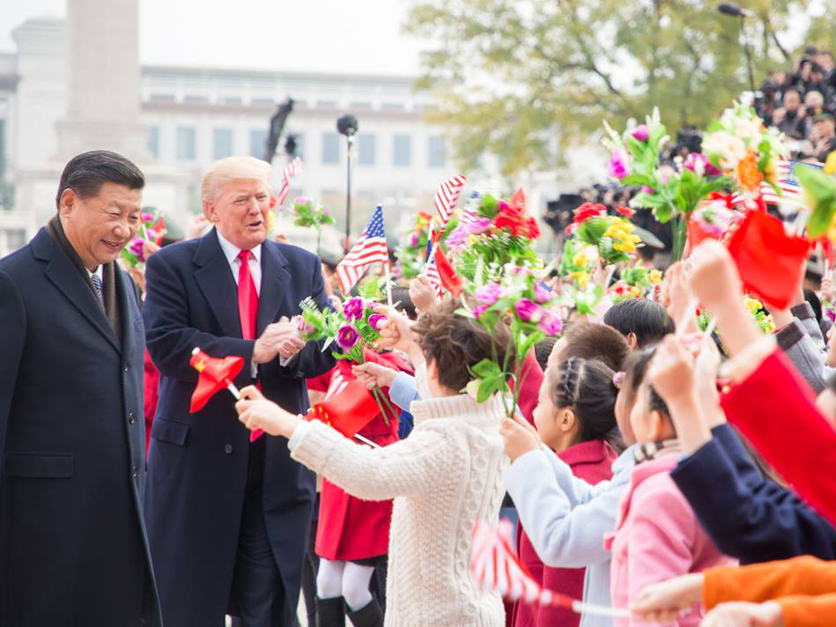President Donald Trump today announced that the U.S. will be hitting steel and aluminum imports from China and other countries with tariffs, elevating an already high level of concern that China will retaliate and U.S. ag exports will be caught in the crossfire.
USDA Secretary Sonny Perdue stressed to House lawmakers recently that agriculture is always the first sector to be hurt in trade retaliation and U.S. ag groups agree.
"This announcement invites retaliation that we are deeply concerned will hurt American farmers,” said Brian Kuehl, executive director of the group Farmers for Free Trade, in reaction to Trump’s announcement. “These tariffs are very likely to accelerate a tit-for-tat approach on trade, putting US agricultural exports in the cross-hairs.”
Trump said he expects to sign the order to slap a 25 percent tariff on all imports of steel and a 10 percent duty on aluminum imports, roughly in line with recommendations released two weeks ago by the Commerce Department.
In a televised meeting today with U.S. steel and aluminum executives, Trump predicted that U.S. production of the metals would rebound quickly once the tariffs are in place. But U.S. farmers are worried they may be the ones to pay for the turnaround. Trump had earlier said that imports of steel and aluminum were threatening the country's security.
To the U.S. Wheat Associates and the National Association of Wheat Growers, today's announcement is proof that other sectors of the U.S. economy carry more weight in the White House.
“We have repeatedly warned that the risks of retaliation and the precedent set by such a policy have serious potential consequences for agriculture,” the two groups said in a joint statement. “It is dismaying that the voices of farmers and many other industries were ignored in favor of an industry that is already among the most protected in the country.”
Soybean farmers may have the most to lose because they ship the most to China. Anything that threatens the billions of dollars in soybean exports to China has the potential to do massive damage to a sector of the U.S. economy that’s already under strain.
The American Soybean Association noted that China is the top market for U.S. soybeans, "purchasing more than all our other customers combined," and accounting for $14 billion in sales and more than a third of total U.S. soybean production. "Retaliation from China would add significant further injury to an already-hobbled farm economy. Prices are down 40 percent and farm income is down 50 percent, and we simply can’t afford for those numbers to get worse," ASA said in a statement.
Senate Agriculture Chairman Pat Roberts reacted angrily to the announcement.
“The president’s announcement on steel and aluminum has the potential to wipe out the significant benefits individuals and businesses have received from our historic tax reform package,” he said. “Like we have seen in the past, American agriculture often pays the price. We need a trade policy that is stable and beneficial to all industries. The announcement today is terribly counterproductive to our economy.”
China knows exactly how important its market is to the U.S. farm economy, USDA's Perdue told reporters today, and that makes the possibility of retaliation more concerning.
“They understand that they’re a huge part of our market and they before have demonstrated their ability to use retaliatory measures on agriculture,” he said.
In September of 2009 the Obama administration announced it was slapping tariffs as high as 35 percent on Chinese tires. In response, China imposed high tariffs on U.S. poultry, effectively stopping U.S. shipments.
If there is a retaliatory strike by the Chinese, Perdue said the Trump administration is looking at ways to help U.S. agriculture survive a trade war.
The U.S. needs to be prepared with a plan to “mitigate” any harm to farmers from potential retaliation, he said, but offered no details.
(Phil Brasher and Spencer Chase contributed to this story.)


